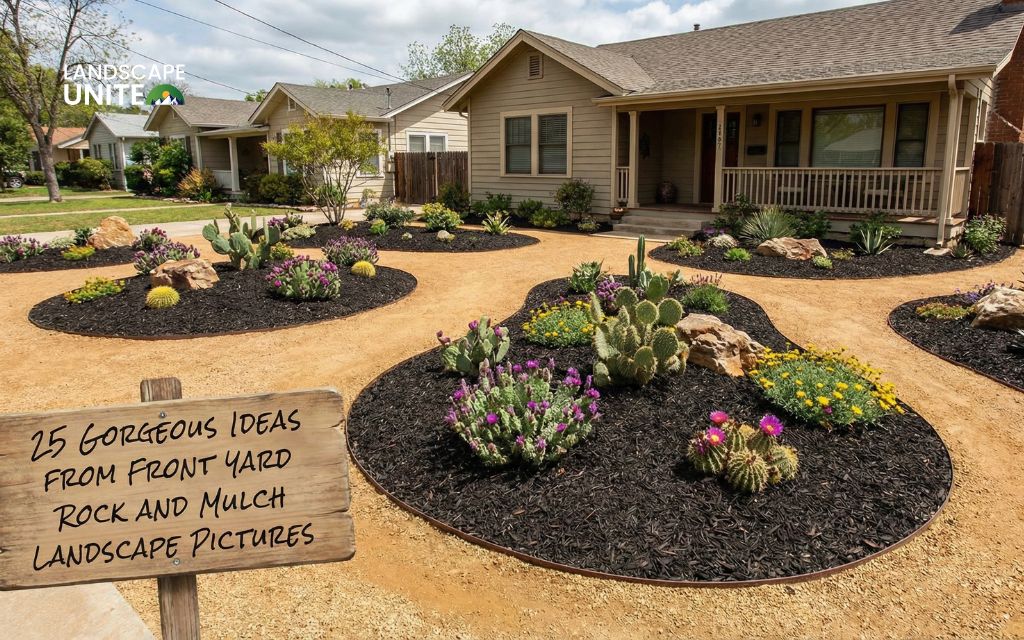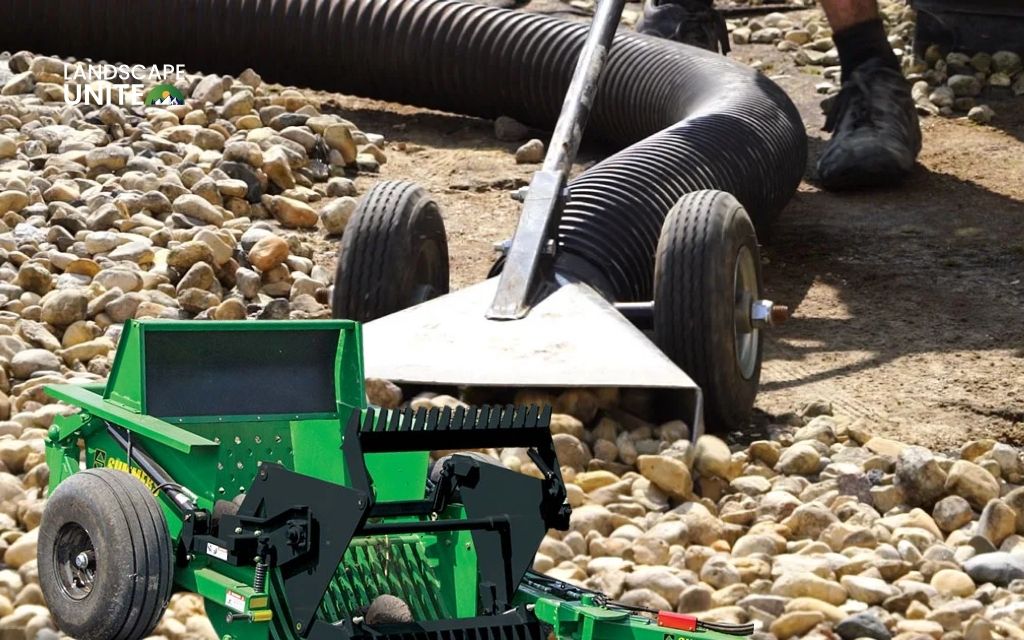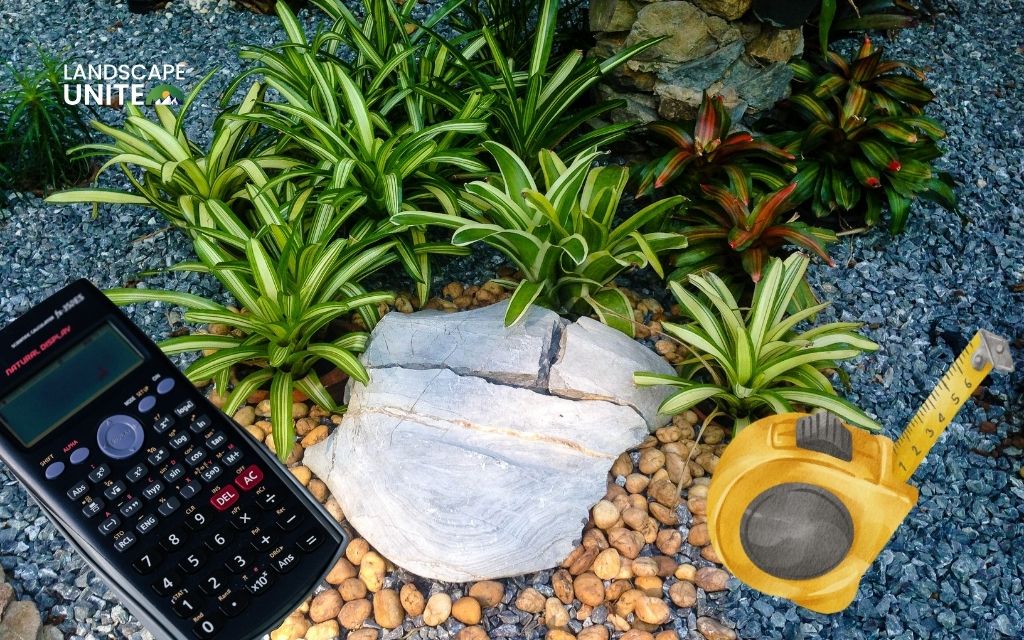Looking for the perfect plants to create show-stopping flower beds that bloom all season with minimal care? These 15 outstanding lantana varieties deliver non-stop color from spring through frost while attracting butterflies and hummingbirds to your garden. Whether you need compact border plants, sprawling groundcovers, or dramatic focal points, this curated list features the most reliable, beautiful, and garden-worthy best lantana varieties for flower beds available today.
These heat-loving champions thrive in challenging conditions where other plants fail. With their drought tolerance and continuous blooming habits, lantana in flower beds creates stunning displays that require minimal maintenance. Let’s explore the top lantana types for landscaping that will transform your outdoor space into a vibrant paradise.
Top 15 best lantana plants flower beds
1. Luscious Marmalade™ – The color champion
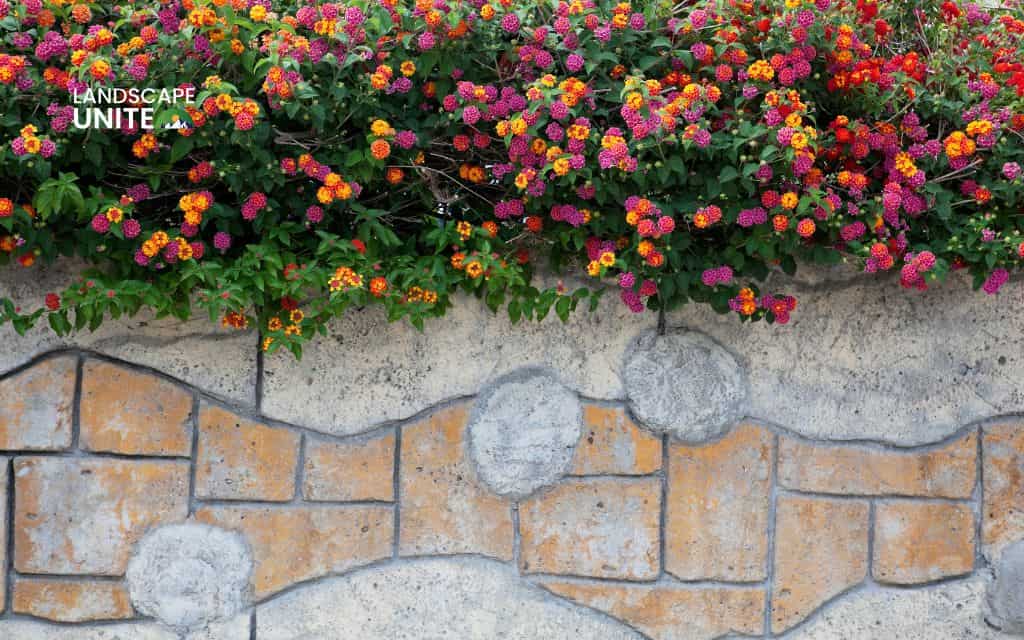
Size: 12-18″ tall and wide
Colors: Vibrant orange and yellow blend
Best For: Container gardens and front borders
Special Features: Sterile, non-invasive, self-cleaning
Growing Tips: Perfect for zones 9-11, annual elsewhere
This modern breeding breakthrough represents the future of lantana in flower beds. The Luscious series features sterile varieties that won’t spread aggressively, making them perfect for controlled landscapes. The marmalade colors create stunning visual impact without the invasive concerns of traditional varieties.
2. Miss Huff hardy lantana – The cold survivor
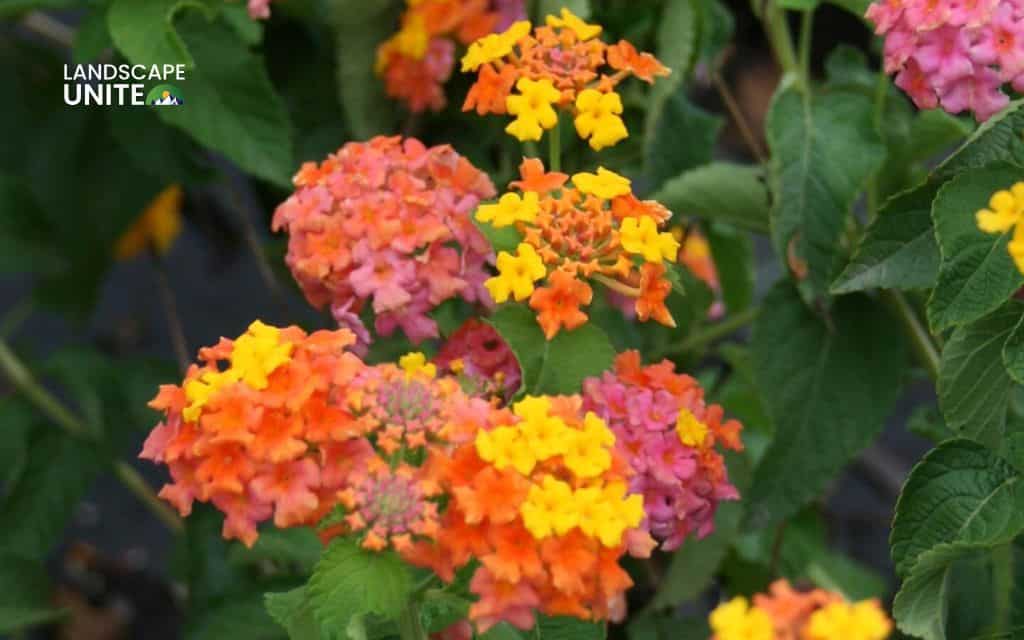
Size: 4-6 feet tall and wide
Colors: Orange and pink flower clusters
Best For: Perennial borders in colder zones
Special Features: Hardy to 0°F, attracts monarch butterflies
Growing Tips: Cut back in late winter, zone 7-11 perennial
When you want cold hardy lantana varieties perennial flower beds, Miss Huff stands unmatched. This remarkable variety transforms traditional thinking about lantana cold tolerance, surviving harsh winters where other varieties perish.
3. Bandana Cherry – The compact powerhouse
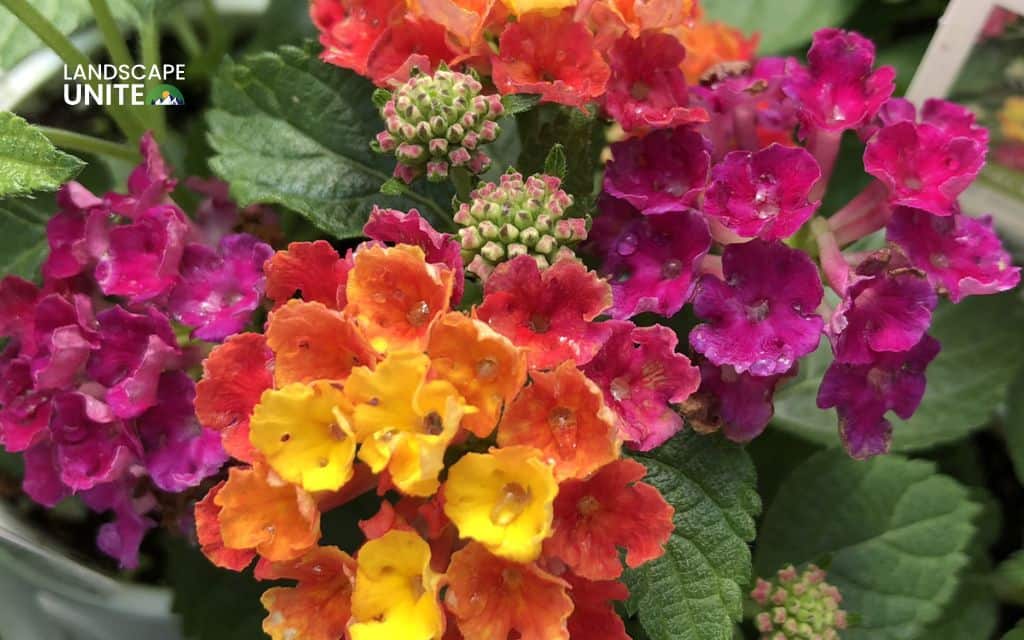
Size: 8-12″ tall, 12-18″ wide
Colors: Deep red with yellow centers
Best For: Edging and small space gardens
Special Features: Heat tolerant, continuous bloomer
Growing Tips: Excellent for containers and hanging baskets
Perfect for best compact lantana varieties small flower beds, Bandana Cherry packs incredible color into tiny spaces. The self-cleaning blooms mean you’ll enjoy continuous color without deadheading chores.
4. New Gold lantana – The Texas superstar
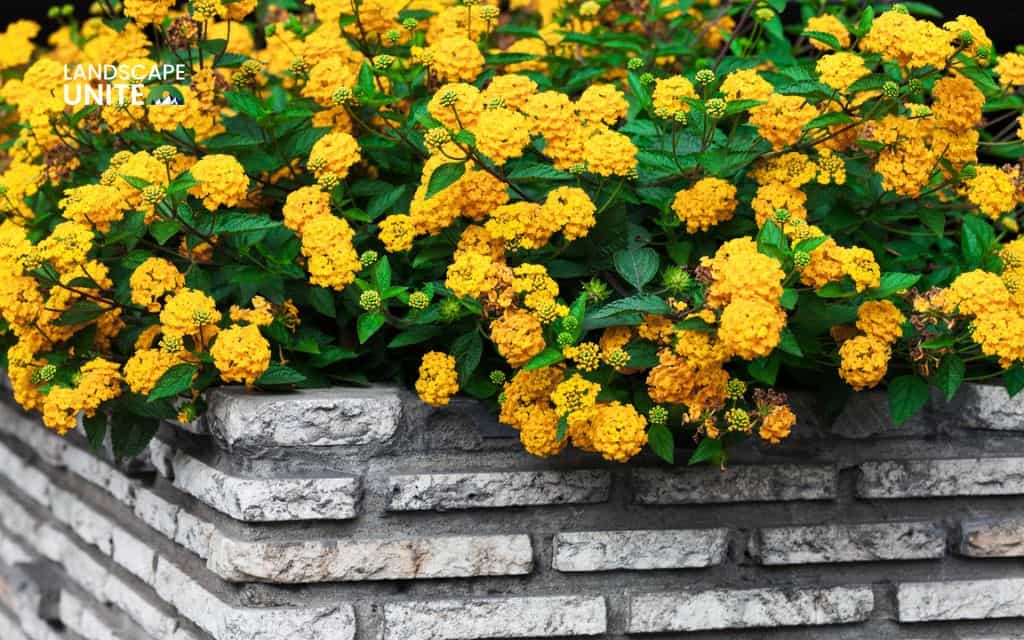
Size: 2-4 feet tall and wide
Colors: Golden yellow flower clusters
Best For: Mass plantings and mixed borders
Special Features: Extremely drought tolerant, butterfly favorite
Growing Tips: Native Texas variety, thrives in hot climates
This drought tolerant lantana varieties list champion proves its worth in the most challenging conditions. New Gold delivers reliable performance when water is scarce and temperatures soar.
5. Trailing Purple lantana – The groundcover hero
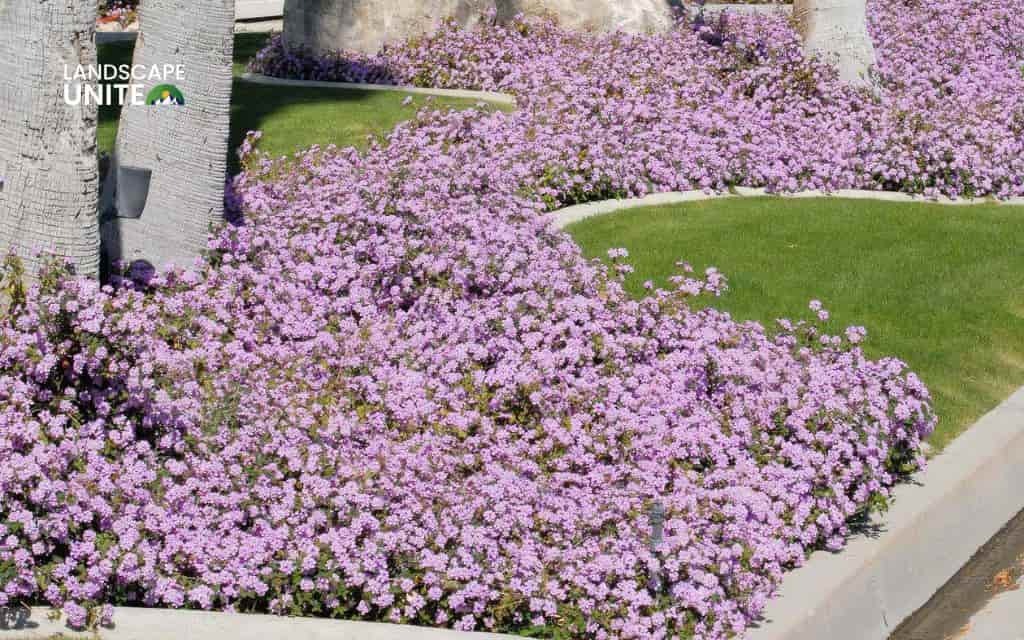
Size: 12-20″ tall, spreads 3-5 feet
Colors: Purple flowers with white centers
Best For: Slopes, hanging baskets, groundcover
Special Features: Excellent erosion control, cascading habit
Growing Tips: Great for coastal areas, salt tolerant
Among trailing lantana varieties groundcover flower beds, Purple lantana excels at covering difficult terrain while providing stunning color cascades. The spreading habit creates living carpets of continuous blooms.
6. Lucky White – The elegant choice
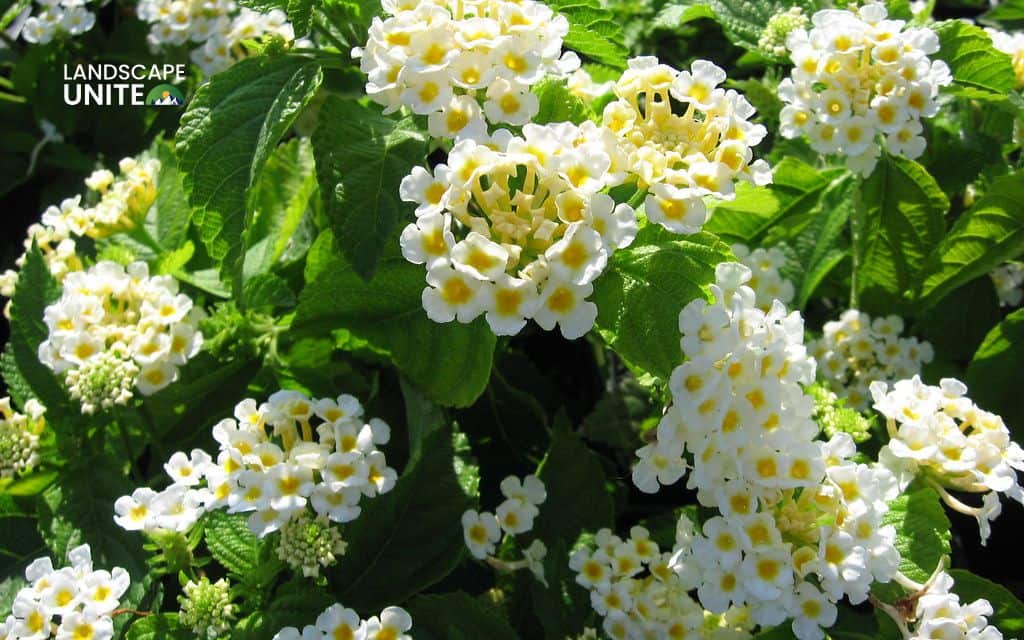
Size: 12-15″ tall and wide
Colors: Pure white flower clusters
Best For: Moon gardens and elegant color schemes
Special Features: Clean white blooms, compact growth
Growing Tips: Combines beautifully with colorful varieties
White varieties serve as neutral connectors in mixed plantings, allowing other colors to shine while providing sophisticated balance to lantana in flower beds designs.
7. Patriot Rainbow – The multi-color marvel
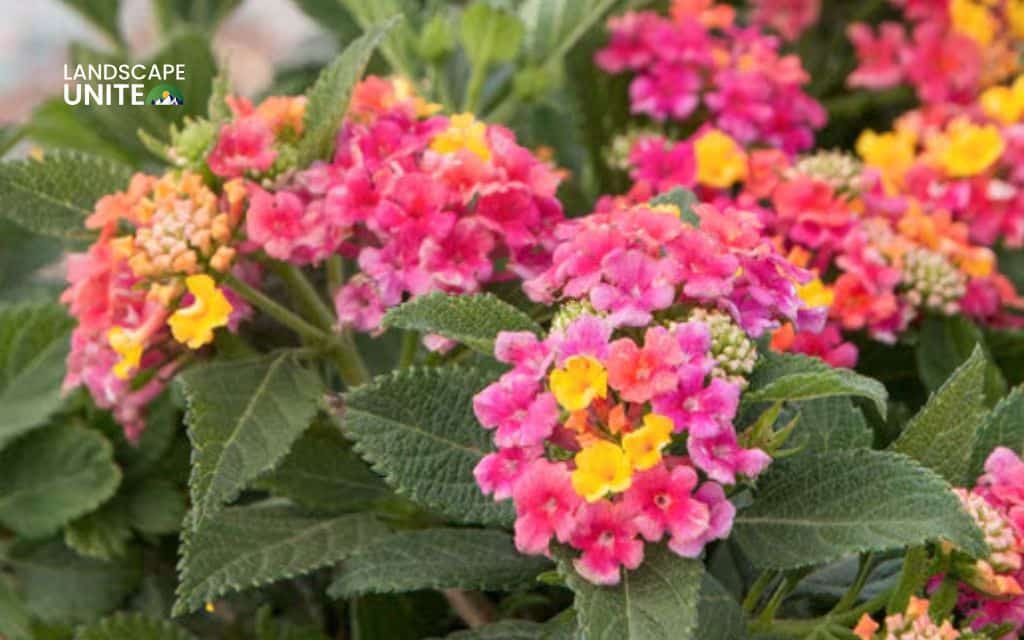
Size: 18-24″ tall and wide
Colors: Red, white, and yellow mixed blooms
Best For: Patriotic themes and mixed containers
Special Features: Three colors on one plant
Growing Tips: Pinch tips for bushier growth
This unique variety showcases color-changing blooms, where individual flowers shift through different hues as they mature, creating an ever-changing display in your flower beds.
8. Luscious Grape™ – The purple perfection
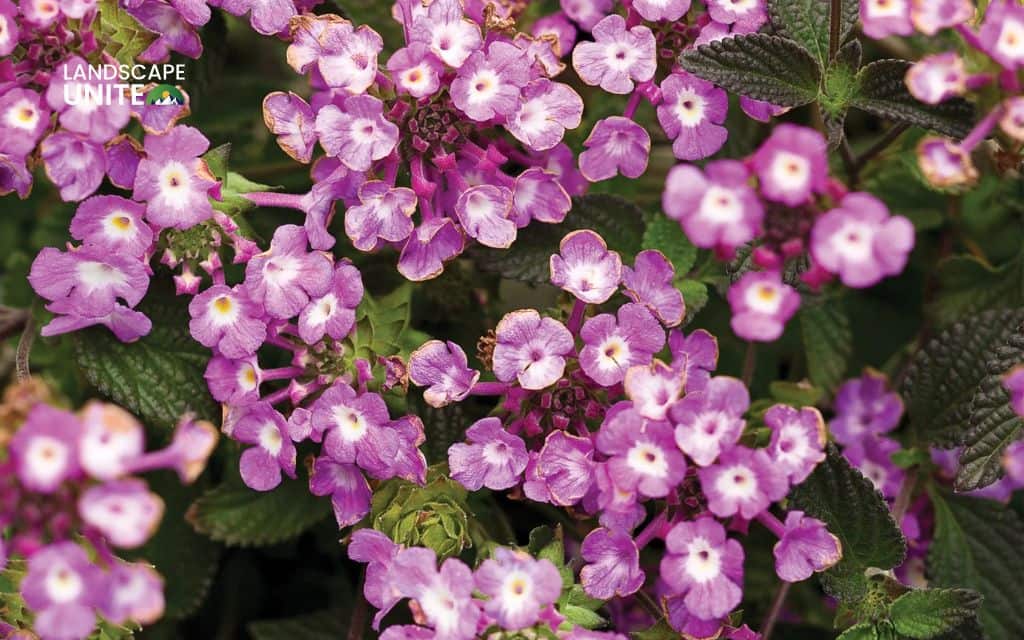
Size: 10-12″ tall, 18-24″ wide
Colors: Deep purple with white centers
Best For: Border plantings and color contrast
Special Features: Sterile variety, intense color
Growing Tips: Excellent heat and humidity tolerance
Another sterile breeding success, Luscious Grape brings intense purple coloration without invasive spreading concerns, perfect for controlled garden designs.
9. Dallas Red – The heat champion
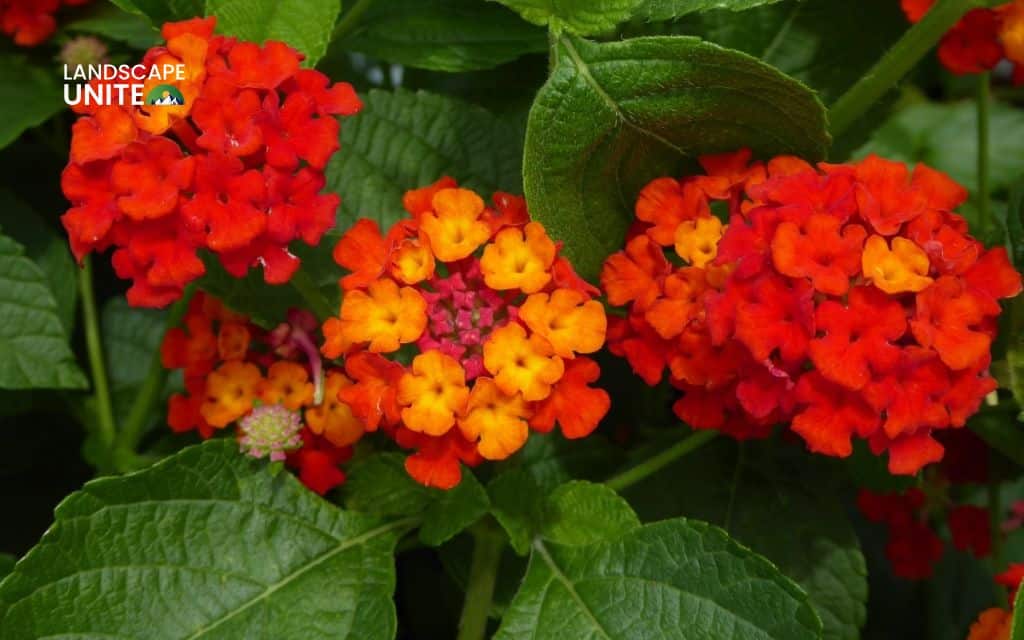
Size: 3-4 feet tall and wide
Colors: Bright red flower clusters
Best For: Large borders and background plantings
Special Features: Superior heat tolerance, long blooming
Growing Tips: Native selection, very low water needs
When extreme heat challenges other plants, Dallas Red thrives, making it essential for colorful lantana types for gardens in hot climate regions.
10. Confetti – The party starter
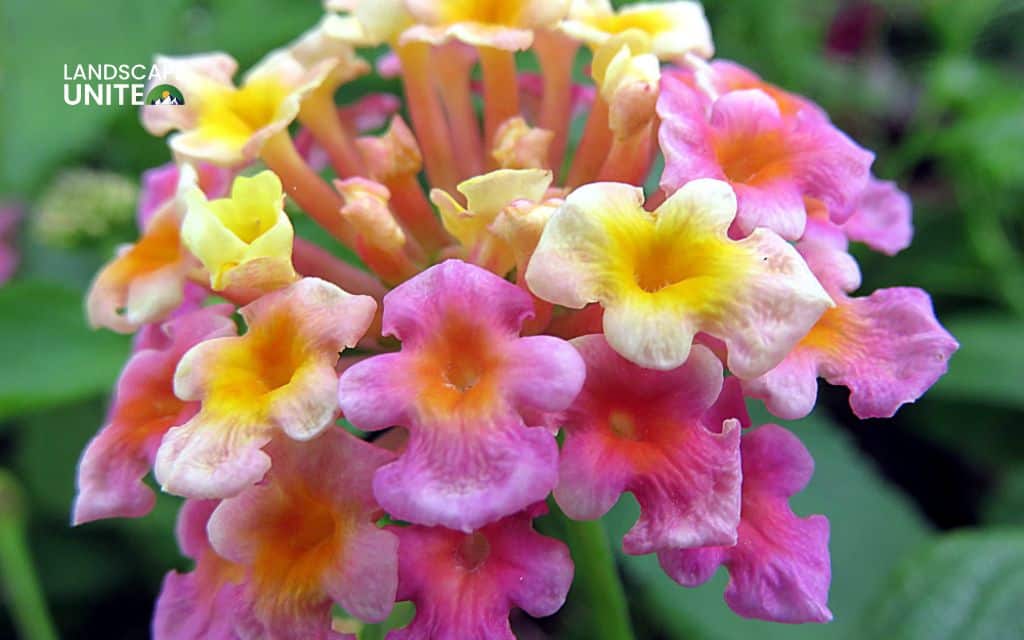
Size: 12-18″ tall and wide
Colors: Pink, yellow, and white mixed blooms
Best For: Cottage gardens and informal plantings
Special Features: Color-changing flowers, festive appearance
Growing Tips: Colors intensify in cooler weather
Confetti demonstrates the fascinating color-changing characteristic of some lantana varieties, where blooms start one color and gradually shift to different shades as they age.
11. Lucky Peach – The soft beauty
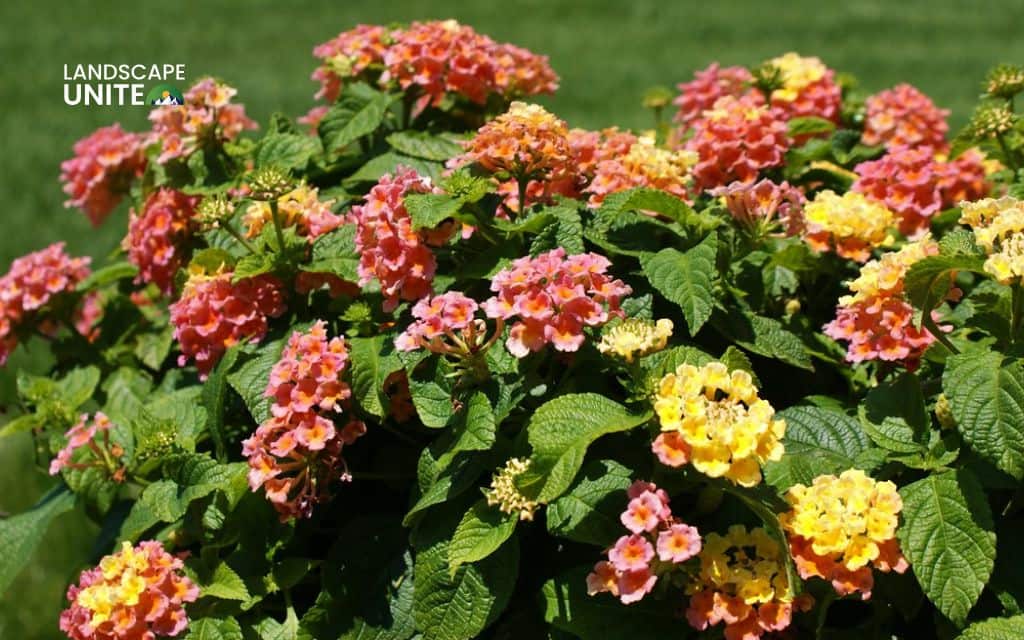
Size: 12-15″ tall and wide
Colors: Soft peach and coral tones
Best For: Subtle color schemes and mixed plantings
Special Features: Unique color combination, compact size
Growing Tips: Pairs beautifully with purple and white flowers
This variety offers sophisticated color combinations that work perfectly in refined landscape designs while maintaining the tough lantana characteristics.
12. Trailing Lavender – The cascading wonder
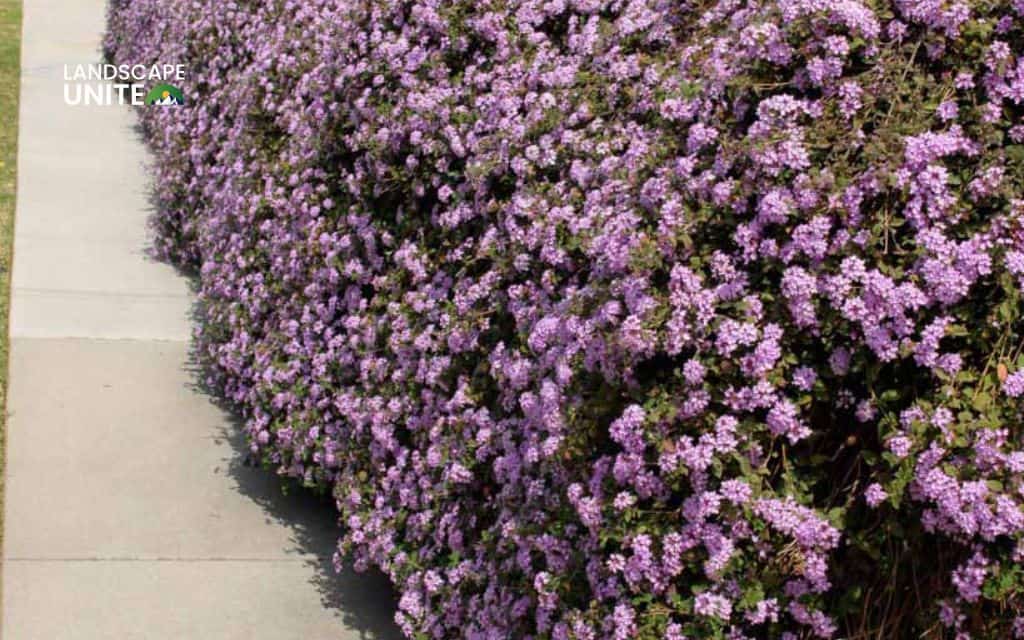
Size: 8-12″ tall, spreads 2-3 feet
Colors: Soft lavender purple blooms
Best For: Hanging baskets and wall cascades
Special Features: Delicate color, trailing habit
Growing Tips: Excellent for vertical gardens
Perfect for adding vertical interest, this trailing variety creates stunning cascades of continuous color in hanging applications.
13. Bandana Pink – The cheerful compact
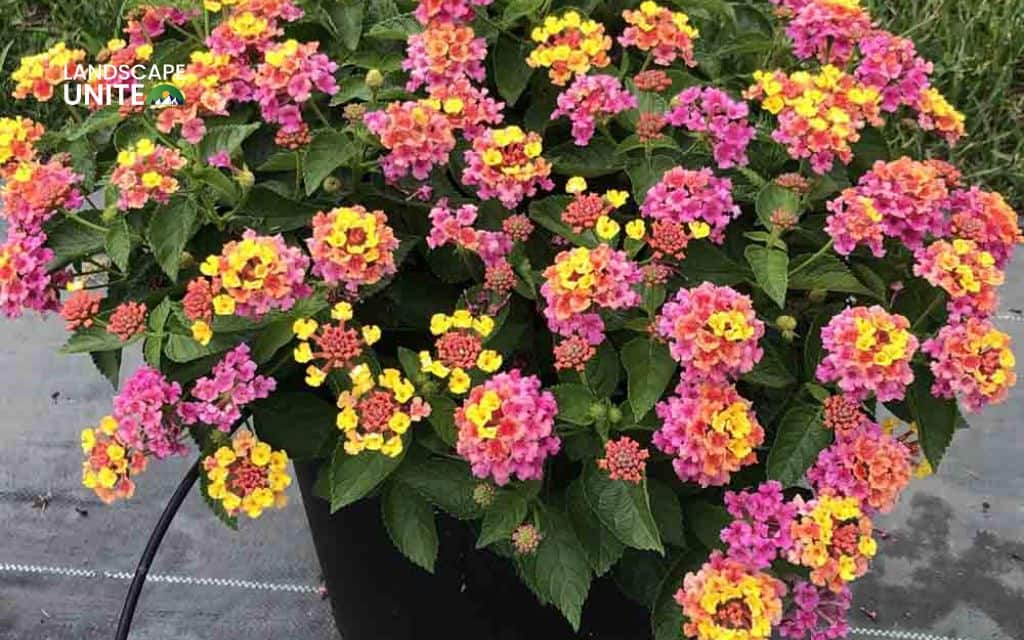
Size: 8-12″ tall, 12-18″ wide
Colors: Bright pink with yellow centers
Best For: Small gardens and container combinations
Special Features: Dwarf size, big color impact
Growing Tips: Perfect for beginners, very reliable
The Bandana series represents modern compact breeding, delivering maximum color impact in minimal space while requiring virtually no maintenance.
14. Lucky Lemon Glow – The sunshine spreader
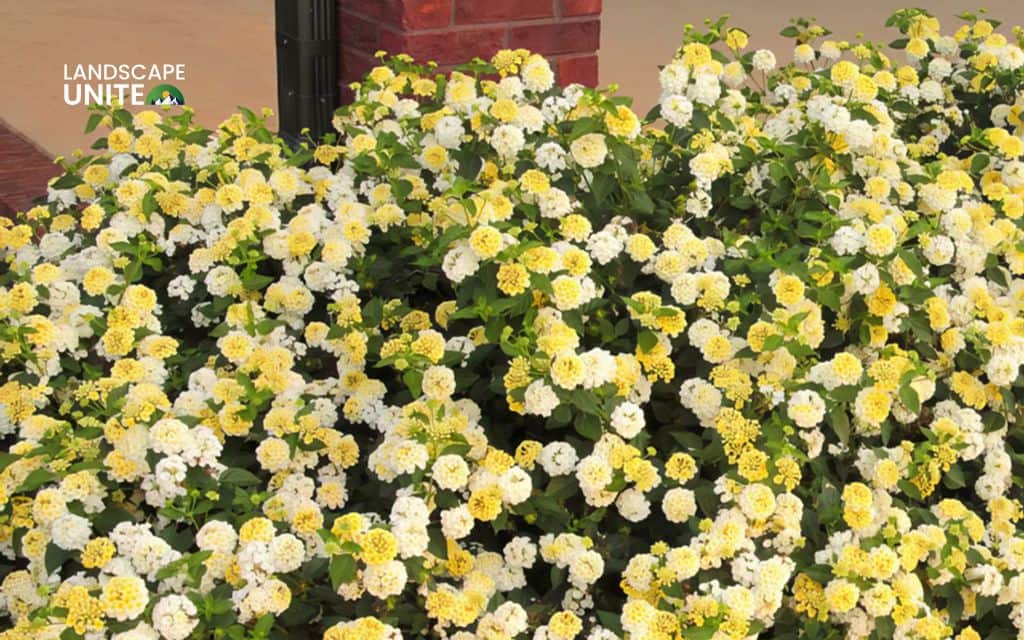
Size: 10-14″ tall, 18-24″ wide
Colors: Bright lemon yellow blooms
Best For: Brightening shady spots and mixed borders
Special Features: Luminous color, spreading habit
Growing Tips: Combines well with purple and red varieties
This variety proves that lantana in flower beds can brighten even partially shaded areas with its luminous yellow blooms that seem to glow.
15. Radiation – The classic choice
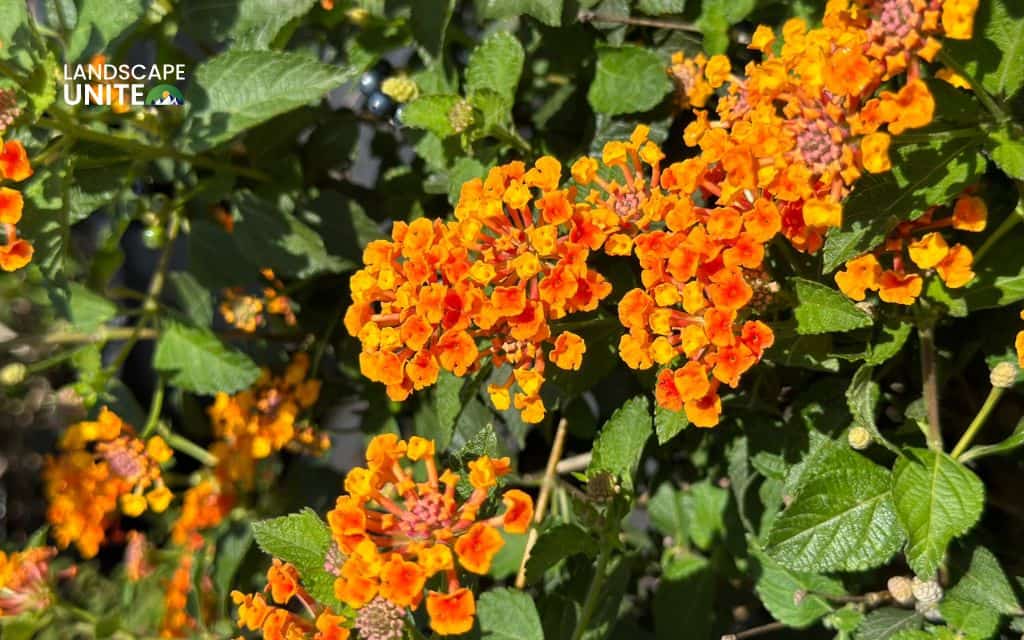
Size: 2-4 feet tall and wide
Colors: Orange-red with yellow centers
Best For: Traditional gardens and proven performance
Special Features: Time-tested variety, reliable bloomer
Growing Tips: Standard variety available everywhere
Sometimes the classics prove their worth through decades of reliable performance. Radiation remains a go-to choice for gardeners wanting proven results.
Why choose lantana for your flower beds?
The ultimate low-maintenance flower
Lantana varieties offer unmatched benefits for modern gardeners facing time constraints and challenging growing conditions. These remarkable plants provide:
- Drought tolerance and heat resistance make lantana perfect for water-wise landscaping. Once established, most varieties survive extended dry periods without supplemental watering. This characteristic becomes increasingly valuable as climate patterns shift toward hotter, drier conditions.
- Continuous blooming without deadheading sets lantana apart from high-maintenance alternatives. The self-cleaning varieties automatically drop spent blooms, revealing fresh flowers underneath. This means you enjoy constant color without time-consuming maintenance tasks.
- Butterfly and hummingbird magnet properties transform your flower beds into wildlife sanctuaries. The flat-topped flower clusters provide perfect landing platforms for butterflies, while the nectar-rich blooms attract hummingbirds throughout the growing season.
Perfect for modern gardening challenges
Today’s gardeners face unique challenges that make lantana varieties with pictures flower beds increasingly popular:
- Climate change resilient varieties adapt to unpredictable weather patterns, extreme temperatures, and irregular rainfall. Lantana’s natural toughness helps gardens thrive despite challenging conditions.
- Water-wise landscaping solution addresses increasing water restrictions and environmental consciousness. These plants deliver stunning results while using minimal resources.
- Beginner-friendly success ensures new gardeners experience positive results. Lantana forgives mistakes while providing impressive displays that build confidence.
How to choose the right lantana variety
Consider your space
Selecting appropriate varieties depends on your specific flower bed dimensions and design goals:
- Compact varieties for small gardens include the Bandana and Lucky series, perfect for containers, small borders, and tight spaces. These varieties deliver maximum impact in minimal footprints.
- Trailing types for groundcover needs like Purple and Lavender Trailing lantana provide excellent coverage for slopes, erosion control, and cascading applications. Their spreading habits create living carpets of color.
- Large varieties for background plantings such as Miss Huff and Dallas Red work perfectly as backdrop plants, providing height and mass while supporting smaller varieties in front.
Color coordination tips
Creating cohesive designs requires thoughtful color planning:
- Single colors for formal designs create clean, sophisticated looks. White varieties provide neutral foundations, while single-color masses create dramatic impact.
- Mixed varieties for cottage garden looks combine multiple colors for informal, cheerful displays. The color-changing characteristics of some varieties add extra visual interest.
- White varieties as neutral connectors help bridge bold colors in mixed plantings, preventing color clashes while maintaining visual flow.
Climate considerations
- Hardy varieties for cooler zones like Miss Huff expand lantana possibilities into traditionally challenging climates. These selections perform as true perennials in zones 7-11.
- Heat-tolerant selections for hot climates thrive where other plants struggle. Varieties like Dallas Red and New Gold excel in extreme heat conditions.
- Sterile varieties for invasive-prone areas address environmental concerns. Modern breeding has created non invasive lantana varieties safe flower beds that provide beauty without ecological risks.
Planting your chosen lantana varieties
Quick planting guide
Success with lantana in flower beds starts with proper installation:
- Best planting times by region vary based on local climate patterns. Plant after last frost danger passes, allowing warm soil temperatures to support rapid establishment.
- Spacing recommendations by variety depend on mature size expectations. Compact varieties need 12-18″ spacing, while large varieties require 3-4′ spacing for proper air circulation.
- Soil preparation basics focus on drainage improvement. Lantana tolerates various soil types but demands good drainage to prevent root problems.
Companion planting ideas
Creating stunning combinations enhances the impact of your butterfly attracting lantana varieties flower bed design:
- Best partners for each variety type include complementary plants that share similar growing requirements. Ornamental grasses, salvia, and pentas work excellently with lantana.
- Color combination suggestions help create pleasing palettes. Purple lantana pairs beautifully with yellow varieties, while white varieties bridge any color gaps.
- Seasonal interest planning extends garden appeal beyond lantana’s peak season. Include spring bulbs and fall-blooming plants for year-round interest.
Conclusion
Your journey toward creating spectacular latana in flower beds doesn’t end with lantana varieties. Ready to transform your flower beds with these spectacular lantana varieties? Start with 2-3 different types from this list to create a stunning combination that will provide months of continuous color and attract beneficial wildlife to your garden.
The key to success lies in selecting varieties that match your specific growing conditions and design goals. Whether you choose compact varieties for small spaces or trailing types for groundcover applications, lantana in flower beds delivers reliable performance with minimal maintenance requirements.
Ready to take your landscaping to the next level? Browse our latest posts for more expert advice, and remember that professional help is always available when you need personalized guidance for your unique outdoor space.
FAQs about lantana in flower beds
Which lantana variety blooms the longest in flower beds?
The Luscious and Bandana series bloom continuously from late spring through first frost, offering the longest flowering period. Their self-cleaning characteristics ensure constant color without maintenance. For extended growing seasons, contact professional landscapers at Mile High Lifescape for personalized variety recommendations based on your specific climate zone.
What’s the most cold-hardy lantana variety for northern gardens?
Miss Huff hardy lantana survives temperatures down to 0°F, making it the top choice for colder zones. It performs as a true perennial in zones 7-11 and often survives zone 6 winters with protection. Read our detailed cold-hardy plant guides for more winter protection strategies.
Which compact lantana varieties work best for small flower beds?
Bandana and Lucky series varieties stay under 15″ tall, perfect for small spaces. These compact powerhouses deliver full-size color impact in minimal space. Bandana Cherry and Lucky White are particularly popular for container gardens and front borders.
Are trailing lantana varieties good for erosion control in flower beds?
Yes, trailing varieties like Purple and Lavender Trailing lantana provide excellent erosion control on slopes while adding beautiful color. Their spreading root systems stabilize soil while the dense foliage prevents washout during heavy rains.
What lantana varieties attract the most butterflies to flower beds?
Miss Huff and New Gold lantana are butterfly magnets, particularly attracting monarchs. The flat-topped flower clusters provide perfect landing platforms, while the continuous nectar supply supports butterfly populations throughout the growing season. For complete pollinator garden plans, explore our specialized butterfly garden guides.
